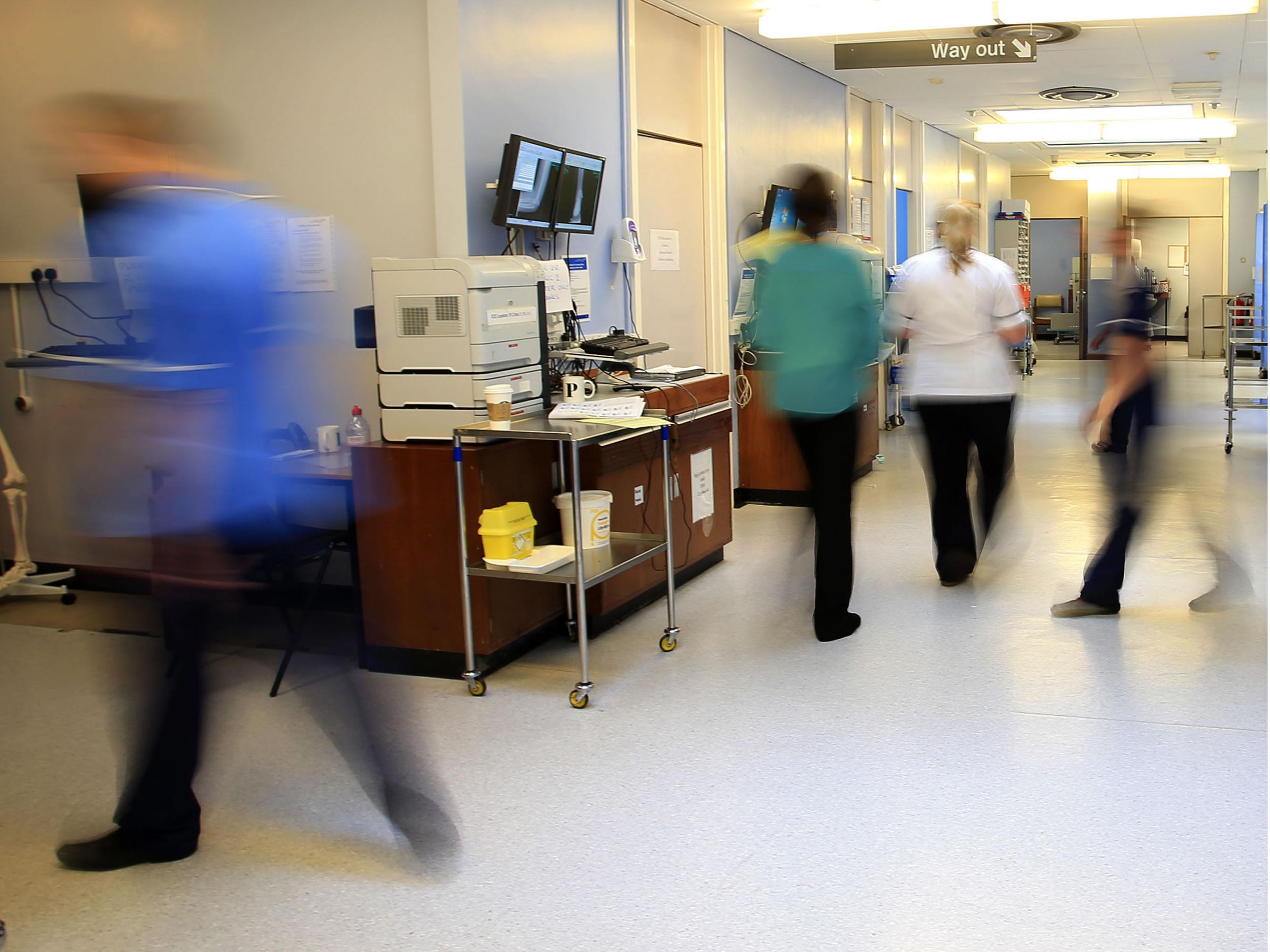Why were NHS hospital beds busier than they've ever been in winter?
'Government ministers should be ashamed that years of cuts to beds, cuts to social care and austerity have led to the worst bed occupancy rates on record'

Your support helps us to tell the story
From reproductive rights to climate change to Big Tech, The Independent is on the ground when the story is developing. Whether it's investigating the financials of Elon Musk's pro-Trump PAC or producing our latest documentary, 'The A Word', which shines a light on the American women fighting for reproductive rights, we know how important it is to parse out the facts from the messaging.
At such a critical moment in US history, we need reporters on the ground. Your donation allows us to keep sending journalists to speak to both sides of the story.
The Independent is trusted by Americans across the entire political spectrum. And unlike many other quality news outlets, we choose not to lock Americans out of our reporting and analysis with paywalls. We believe quality journalism should be available to everyone, paid for by those who can afford it.
Your support makes all the difference.Government cuts in the face of rising patient demand contributed to NHS beds being fuller than ever this winter, according to new analysis.
It also found thousands of cancelled operations were not enough to prevent bed crisis.
Between January and March this year bed occupancy across all NHS trusts averaged 92.6 per cent according the analysis by the Royal College of Surgeons (RCS) found.
This was well above the safe level of 85 per cent recommended by medical experts, above this threshold patient management regularly hits crisis point and infections become more likely.
It is even above the maximum threshold of 92 per cent which the Department of Health said no hospital should exceed, though The Independent found 20 per cent of hospitals at 100 per cent occupancy within weeks of winter starting.
NHS England said it saw more patients than ever and had fewer in hospital inappropriately, but critics have said the pressures were made worse by government austerity measures since 2010.
The report confirms this was the worst winter on record, as bed occupancy over the whole period was 1.2 per cent higher than in the same period last year when the NHS managed 91.4 per cent occupancy.
This was despite prime minister Theresa May claiming the NHS was “better prepared than ever” for winter, with additional funding allocated to social care to allow patients to be sent home when well.
The winter also saw NHS leaders take the unprecedented step of calling for the pre-emptive cancellation of tens of thousands of non-urgent operations in December and January to ensure there was space for emergency patients.
Health secretary Jeremy Hunt and the heads of the National Emergency Preparedness Panel, which recommended the cancellations, said this would mean operations could be rescheduled in a more timely way.
However the RCS also found that “last minute cancellations”, on the day or 24 hours before a patient was due to be in hospital or operated on, hit 25,475 in the same period- the highest number since records began in 1994.
RCS vice president Mr Ian Eardley, said cancellations had been “exceptionally high” and this could be very distressing for patients and cause their condition to deteriorate.
“These figures are very worrying but they will come as no surprise to frontline staff who struggled to provide care for their patients because of increasing demands and a shortage of hospital beds this winter.”
He added: “The fact remains that none of what the NHS experienced this year was new. A recent European Commission report found that the UK had the third lowest number of hospital beds in the EU at 2.6 per 1,000 in 2015, compared to the EU average of 5.1.”
In a meeting of the NHS England board today director of operations Matthew Swindells said health service is already gearing up for next year but that the NHS would need another 4,000 beds.
There were 103,358 beds available across the NHS this winter, but the government has cut more than 5,000 since the winter of 2010/11.
Mr Swindells stressed that currently large numbers of patients were sat in hospital for more than three weeks, despite being well enough to go home, and tackling this could free up the space.
“Yet again this is more damning evidence of a Tory made crisis in the NHS,” said Labour shadow health secretary Jonathan Ashworth. “Government ministers should be ashamed that years of cuts to beds, cuts to social care and austerity have led to the worst bed occupancy rates on record.
“Bed occupancy rates above 85 per cent pose a significant risk to patient safety and the downturn compared with last year should be a cause of serious concern.
An NHS England spokesperson said: “The NHS treated 160,000 more A&E patients within four hours compared to last year and freed up an average 1,533 beds a day by reducing delayed discharges. But with an estimated one-in-four people in a hospital bed not needing to be there, these figures show the importance of NHS organisations and local authorities continuing to work together to keep people healthy at home for longer.”
Join our commenting forum
Join thought-provoking conversations, follow other Independent readers and see their replies
0Comments